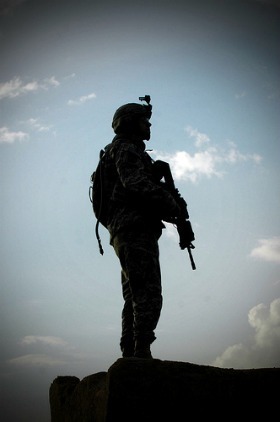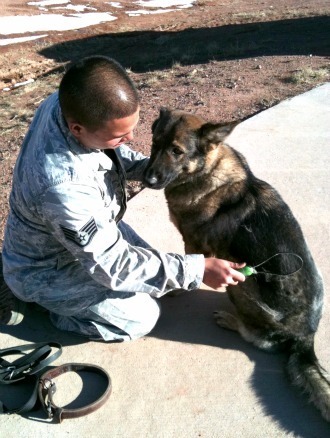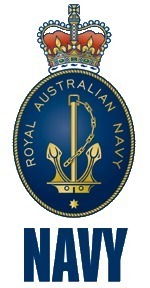Thomas E. Ricks's Blog, page 211
December 19, 2011
Best defense top 10s of 2011: Tom's picks

Best
defense top 10s of 2011: Tom's picks
Over the break, I am running my 10 favorite
Best Defense posts of the year. War Dogs is so popular it will get its own
special day. I also will do a list of best 10 guest columns.
Looking over the year's columns, these are
the ones that for various reasons jumped out at me. It took a half a day to do
this, mainly because the FP website loads so slooooooooowly. Someone needs to
feed the squirrels inside the servers.
10.
Annals of sucky deployments. This was a favorite in part because it so
seemed to capture the oddity of one soldier's tour of duty, but also because I
was surprised by the reaction to it.
9. The 19 things generals can't say about the
Afghan war that are true. Honestly, this was not one of my favorites of the
year, but the response was so widespread that it deserves to be remembered. To
my surprise, it was picked up by a variety of newspapers and run as a column.
8. Was JFK the worst president of the 20th
century? On reflection, no, he wasn't. But I do think he is the most
over-rated.
7. The defense budget implosion series, this
one about cutting retirement benefits.
6. The story of a purposely pro-Nazi unit in
the U.S. Army during World War II. Just interesting weird stuff.
5. Lt.
Gen. Walter Ulmer on what a good unit feels like. This is a sentimental
favorite because a friend of mine saw this quote and used it in a book about what
makes a good school.
4. Getting blown up and then getting ticketed
in Bagram. This just brings home the nature of our wars these days.
3. I think President Obama handled Libya
well.
And still think so a bit later.
(But I still worry about the narrowness of
his national security team. This is an unnecessary vulnerability.
2. I liked this one about the meaning of a
World War II photograph because it is brings home the nature of this blog, in
which the commenters and guest columnists contribute so much. To me, this post,
and the 73 comments that follow, are what the Best Defense is all about.
1. There is more of my heart in this one than
in just about anything else I've ever written. Susan Glasser, the impressive
editor of Foreign Policy, asked me to
write a summary of what I am thinking about Iraq right now. I thought, "I just
did"—and thought of this column.
The U.S. Army/Flickr
December 18, 2011
December 16, 2011
After its EFV and aviation blunders, the Marine Corps needs to strive to regain its old reputation of doing more with less

By Col. T.X. Hammes, USMC (Ret.)
Best Defense guest columnist
As Lt.
Gen. Victor Krulak noted, the nation doesn't need a Marine
Corps. It has a Marine
Corps because it wants one. Part of that want is the assurance the Corps
combines value for money and readiness to fight. Unfortunately, some of the
Corps' recent decisions have undercut those arguments.
We are adamant we need the F-35B -- the most expensive and least capable of the
F-35 family. We state that we must have the "invaluable" STOVL
capability yet we cannot point to any example in the 30 years of flying
Harriers that STOVL has been essential operationally to the nation. That
capability has been useful in several operations but not essential. More
expensive and, in some ways, less capable than an upgraded F-18, the F-35B will
also be very expensive to operate. Thus we will fly fewer hours and be
less ready. This is all at a time that even open source reporting is
stating that new IRST (infra-red search and track) pods will allow any fighter
equipped with one to see the F-35. Defense
Technology International notes that IRST pods are standard on Sukhoi and
MiG fighter. (Dec 2011, p. 39). Simulations indicate this will result in
more close-in fights -- exactly the arena where the F-35 is weak.
Interestingly, the Corps was just as adamant about the Expeditionary Fighting
Vehicle despite that fact that its purchase would have consumed the Corps's
budget for ALL ground equipment. To get the EFV we would have had to give
up everything else. Fortunately, this program has been cancelled.
In a similar way, the F-35B will consume a major portion of the Corps' aviation
acquisition budget. To gain this "nice to have" STOVL capability,
the Corps will have to give up other fully tested and capable assets - during a
time of declining budgets. It will also have to carry the much higher
operating costs for the life of the aircraft.
In sharp contrast, the Corps has updated the UH and AH to first class systems
for a fraction of the cost of developing new systems. These programs are
in keeping with the Corps' historical frugality. Similarly, the Corps'
purchase of the Brits used Harriers as parts blocks for our fleet is typical of
what Americans expect from us.
For despite these programs, decades of relentlessly pursuing three most
expensive end items in anyone's inventory - F-35B, MV-22 and EFV, means our
Corps needs to earn back its reputation for being ready with less money.
This includes getting serious about looming personnel cuts. Being
ready is less about the total number of people than the correct number and mix
of people. We were certainly ready for the conventional phases of
Afghanistan and Iraq when our force was about 170K. Given that, I have a
great deal of trouble justifying the expense of the planned 182-186K once we
leave Afghanistan. The last decade's rapid increase in personnel costs
means it will cost us a great deal more to maintain the same size force.
Of particular concern to this author, the Corps was being looked at for a cut
to 150K in 2001 -- when we had record surpluses. It is prudent we start
looking hard at that number during this period of record deficits. While
it may not make sense from a strategic point of view, political necessity may
well drive us there. We need to think through how the Corps remains ready
at that number while simultaneously dealing with a reduced operations and
maintenance budget.
Our
Corps' ethos has carried it through lean times. Part of that ethos is the
willingness of both individuals and the institution to question conventional
wisdom. Thus, it is particularly disturbing to see one's loyalty to the Corps
questioned if one questions the current policies. Losing that is much
more of a danger to the Corps than a draw down.
The key, as always for the Corps, is to maintain our culture. It was our
culture that allowed a Corps with only 76,000 on active duty to mobilize and
deploy a division/wing team in less than a month in 1950. Readiness is
not tied to end strength but to attitude. It is that attitude that
Americans treasure.
Semper Fi,
T. X. Hammes
T.
X. Hammes served 30 years in the Marine Corps and is now a Senior Research
Fellow at National Defense University. The views expressed are his
personal views and do not reflect the views of the Department of Defense or the
University.
The annals of chickenshit: They do it to get a sense of control over the situation

Here's another take on the
reflective belts controversy, which says we should focus less on the belts
and more on the number of billets for general officers.
Meantime,
the mysteriously named commenter named "_B_" offered this
astute analysis last Friday of why we see enforcement of petty regulations
and such on bases
in combat zones:
--
"When
you can't accomplish the important, the petty becomes important.
I
was in South-Central Iraq in 2008, on a multinational FOB which had been
getting rocketed fairly regularly. A conventional brigade showed up; they were
living in tents due to lack of CHU space, and highly vulnerable to IDF. They
did not go out on a single raid that I know of to get the guys who were
lighting the FOB up (fortunately, others did.) The only times those guys went
outside the wire, it was to ferry their senior leadership across the province
for unproductive key leader engagements (they killed an Iraqi police guy with
an MRAP while going through a checkpoint on one of those field trips.) You know
what their senior leadership's priorities were? Doing away with takeout trays
at the DFAC (since, according to the brigade's CSM, the local nationals working
on base were sneaking food out to feed to the insurgents) and enforcing
ludicrous uniform standards (all brigade personnel had to wear gloves
outside-in August-to avoid sunburning their hands, and noncompliance meant an
Article 15.) I had to pry their CSM off one of my junior guys at breakfast one
morning-we'd just come back in the wire after being out all night, and he
didn't like my dude's uniform.
The
main issue is this--a LOT of the senior leadership is lost in the sauce, has no
idea what's going on or how to accomplish anything concrete. So, they attempt
to make themselves feel like they're in control of the situation via a)
imposing ludicrous chickenshit on those below them, and b) spending most of
their time liaising with other senior Americans, doing coordination meetings,
briefings, etc., etc., etc. That way, they feel like they are in control of
their environment, and never have to encounter anything which would suggest
differently. All this is done at the expense of their subordinates and of the
war in general, but that's ok."
--
(HT
to "Soldier's Diary")
Rebecca's War Dog of the Week: Postcard from a Rocky Mountain Kennel

By Rebecca Frankel
Chief Canine Correspondent
This
week's mini-post comes all the way from the USAF Academy in Colorado Springs
where I've spent the last few days traveling around with Kennel Master Chris
Jakubin and his team of handlers. I owe them a tremendous debt of gratitude for
letting me crash their kennel and watch them work their dogs - Haus, Mack, Oli,
Boda, and Benga. Special thanks also to the teams at Fort Carson, Buckley AFB,
and the Colorado Springs Airport. It's been an incredible week.
Above,
Boda, a bomb detection and patrol dog, enjoys a much-deserved outdoor brushing
from her handler Staff Sgt. Robbie Whaley after running drills at Fort Carson.
December 15, 2011
One colonel's thoughts on the end of our long, hard involvement in the war in Iraq

The New York Times
came across some Haditha
documents dumped in Iraq. I read the article but I didn't see anything new.
My Washington Post colleague Josh
White covered all that stuff pretty thoroughly several years ago.
More thoughtful are the comments below from Col. Teddy
Spain. I knew him back in Baghdad in 2003, when he commanded the MPs in the
capital, and I wrote about his experience in my book Fiasco. He's a good soul. Recently he and I have been talking about
the end of the war in Iraq. Here are his thoughts these days.
By Col. Teddy Spain, U.S. Army (Ret.)
Best Defense guest columnist
Americans will be debating for many years to come the wisdom
of the political decision that took us to war with Iraq in March, 2003. I
served as the Commander of the U. S. Army's 18th Military Police
Brigade during the ground war and first year of the occupation of Iraq. I am
deeply concerned about what happens after America departs. I don't think we
have achieved what we set out to achieve.
I'm concerned Iraq cannot secure itself and we will see an increase in
Iranian influence. The soldiers of my brigade understood the importance of a
credible Iraqi police force and worked heroically to stand up a functioning
Iraqi policing system. Not enough
emphasis was placed on the development of the Iraqi police and rule of law
during the first year of the war. From my past experiences, I don't feel the
Iraqi police will be ready by the end of this month to assume the burden of
protecting Iraqis from the variety of influences who will be trying to
undermine Iraq's recovery and pursuit of democracy. The Iraqi police will be
the target of their wrath in an effort to send a clear message to frightened
Iraqis that even the police cannot protect them. I find it hard to believe we
will not have to return at some point in the future, and perhaps lose even more
soldiers, than if we were to keep a larger presence there now.
Being a commander in combat is a heavy burden. Parents, brothers, sisters, and countless
others entrust you with the care of their loved one. As a commander you constantly balance mission
accomplishment, with the welfare of your soldiers. You understand soldiers will die, and you do
everything in your power to ensure it makes a difference when they do. When we pull out of Iraq in a couple of
weeks, will that undermine everything my soldiers fought and died for? Not to mention the ones sitting at home
without all of their arms and legs? I've
been asked many times since I've retired what my biggest concern about Iraq
is. I always answer without hesitation
that I'm concerned that my 13 soldiers died in vain. That concern will grow at
the end of this month. Many politicians
talk about the cost of war in dollars. I
had millions of dollars worth of equipment destroyed in Iraq and never lost one
minute of sleep over it. However, every
day of my life I think of those 13 soldiers and ask myself if there is anything
I could have done differently to have brought them back home alive. I come up
empty for an answer every day. If I ever
conclude they died in vain, I hope it's not because yet another politician
pulled us out of Iraq before we finished the job we were sent there to do.
Questions About a USMC Medal of Honor

I am sorry to see that the Marines
are alleged to have inflated
the record in order to get Dakota Meyer a Medal of Honor. This guy simply
does not deserve all he is going through. Anyway, here is the
USMC response.
My initial thought is people would be
shocked at how political the MoH is. Yesterday I was looking at an Army study
of the awarding of the medal in World War II. There is a section on how
MacArthur, jealous of subordinates, sat on a bunch of nominations until, near
the end of the war, George Marshall flatly ordered him to send the paperwork to
Washington. At the same time, Marshall gave MacArthur himself a MoH for leaving
the Philippines, in part to shield him from allied skepticism and allegations
of cowardice for leaving his troops.
Best Defense rules for military leadership

No. 23: Don't spank your
subordinate officers. It is just a bad idea.
Meanwhile, "BN Runner," a smart reader and commenter,
asks how this
woman (who was just suspended as commandant of the drill sergeants' school
at Fort Jackson, S.C., not clear why) could be a command sergeant major in
today's Army and never have deployed?
December 14, 2011
Before you bury COIN, here are some thoughts to put in the time capsule with it

My old friend Marine Col. (ret.) Gary
Anderson writes from somewhere overseas that, "No poor dumb son of a bitch ever won a counterinsurgency by
sitting on his FOB. He won it by making the other poor dumb son of a bitch sit
on his FOB."
Meanwhile, here is a guest
column on COIN issues:
By "Ford Prefect"
Best Defense asylum for COIN
bitter-enders
I
know and respect Col.
Gian Gentile from our years teaching at USMA and afterwards. I think
he's off on this -- just like the uber-COIN pundits of the 2004-2007 era were as
well. There were a few people (John
Nagl and some others come to mind) that were thinking about COIN in the
decade prior to 9/11 -- they were very few, and very far between. Others
piled on the COIN train as it left the station, and tend to be the first to
jump off as soon as it stops. Just an observation.
COIN
should not be an organizational "design tool" to build the U.S. armed
forces around. It is a method of conflict -- with its own doctrine, tactics
and strategy -- that is applied when it is needed. Conventional, armored
ground warfare is much the same. As is sub-surface, surface, cyber, and so
on. The key point is to maintain a cadre of competent NCOs and Officers capable
of doing those missions when needed. How many Coast Guardsmen are
competent in ASW? My bet is less than 10. But if the Coasties ever get the
mission, those 10 guys/gals will be worth their weight in gold.
COIN
is not "dead" -- it isn't something that can die. It will exist
as long as you send your armed forces to deal with populations outside of
fighting their organized armies. COIN isn't counter-terrorism; the former
is a military mission, the latter at its core a law enforcement mission.
CT will continue on as long as terrorism is a tool of a weak adversary; the
same with COIN.
The real question, I think, is how to we keep enough folks around to serve as a
cadre for those 'esoteric' missions (like COIN, but also including tactical
nuclear warfare, amphibious operations, mass airborne operations and so on)
while doing what the Nation expects the armed forces to do -- provide the 'common
defense' of the Republic. Smart reorganization, with a clear
understanding of possible future missions, is the key, not dancing on the grave
of COIN.
"Ford
Prefect" is hitchhiking around Afghanistan. Or sitting in the cubicle to your
right. Feeling lucky, punk? Well
do ya?
Are we getting sloppy about using the U.S. military for domestic law purposes?

This account
of using an Air Force Predator to go after cattle rustlers in North Dakota
should worry me more than it does.
My gut feeling is that if the Air
Force didn't do it, law enforcement would get their own drones. That said, it
seems to me that what once was a bright line is getting fuzzier and fuzzier.
Kind of like the line between interrogation and torture. When I am an old man I
will tell people I can remember when America was exceptional, and we were
better than that.
Thomas E. Ricks's Blog
- Thomas E. Ricks's profile
- 436 followers




